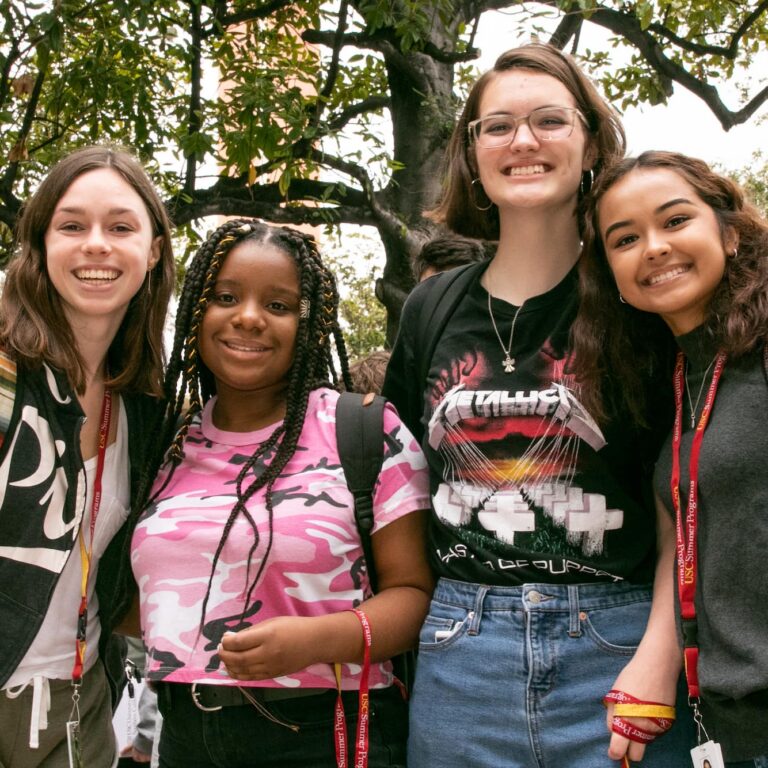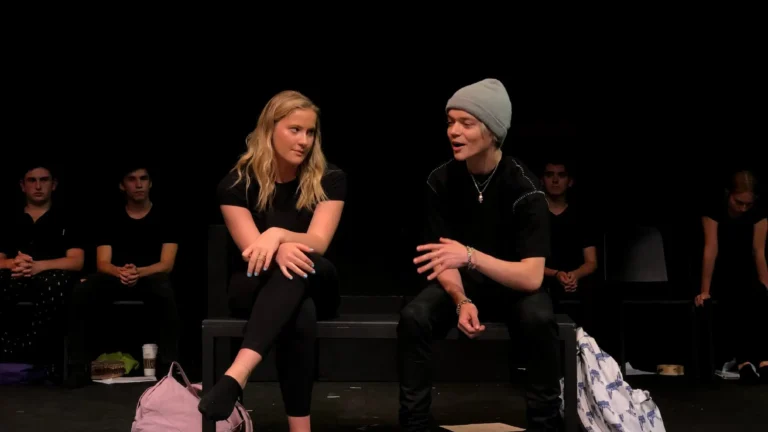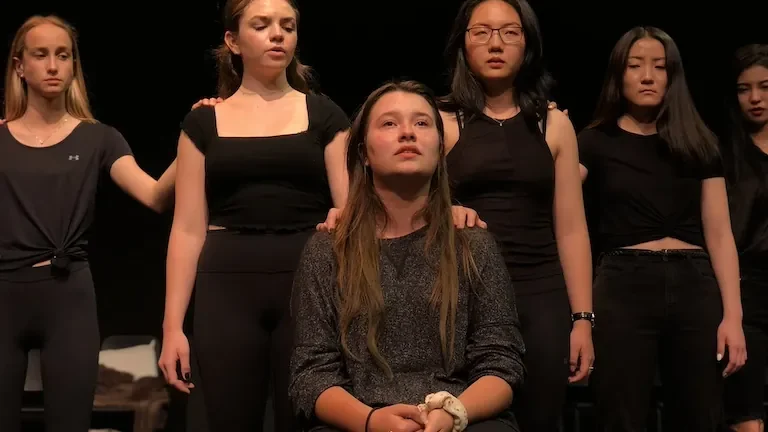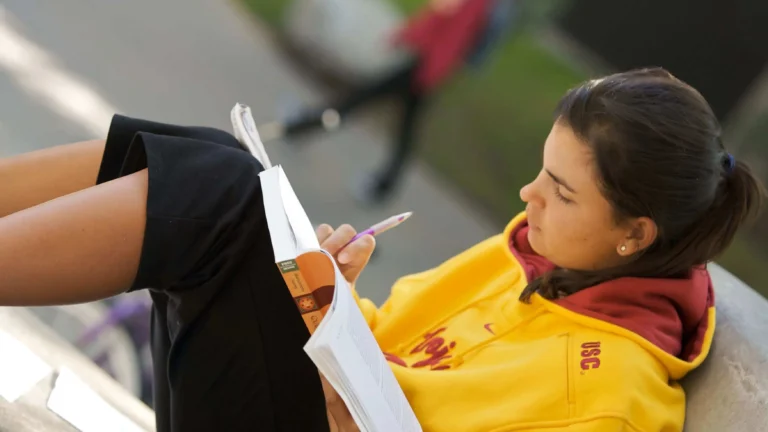
Two hands hold a piece of paper over a desk. Here’s how to get recommendations from the faculty members teaching your pre-college program. (Photo: iStock)
How to Get Faculty Recommendations During a Pre-College Program
Letters of recommendation are a great way to enhance your college applications — and university faculty make great sources! Here’s how to ask your pre-college professors for recommendations.
Pre-college programs let you dive into university life before you even apply to college, allowing you to enroll in classes, connect with peers, explore school campuses and experience the rhythms of college. But the benefits go beyond personal growth and university preparation: Participating in a pre-college program can also open doors to securing letters of recommendation from faculty, strengthening your future college applications.
Nearly all universities require a letter of recommendation as part of the application process. While a mentor, teacher, coach or employer can craft a compelling recommendation, a letter from someone within the college itself can carry unique weight, offering an insider’s perspective that affirms you’d be a fantastic fit.
To learn more about how to get a letter of recommendation from faculty at a pre-college program, we spoke with Jeymi Choi, director of academics and operations for USC Pre-College Programs.
What Is the Purpose of a Faculty Recommendation?
Letters of recommendation are essential components of a college application, reinforcing the strengths you’ve already highlighted by showing that a trusted adult believes you have the skills and potential to succeed. This endorsement becomes even more impactful when it comes from a faculty member who understands the academic institution deeply, adding credibility and insight into your ability to thrive there.
“Admission teams are looking for well-rounded students who not only perform well in the classroom, but can highlight other aspects of their leadership, discipline or collaboration efforts. A good faculty recommendation will be able to highlight these characteristics that will make you stand out,” Choi said.
Who Should You Ask (and Not Ask) for Letters of Recommendation in a Pre-College Program?
Asking for a letter of recommendation can feel daunting, Choi acknowledged, since it involves requesting a favor that requires time and effort. However, it becomes easier when you’re approaching someone with whom you have a genuine connection. That is why it’s essential to fully immerse yourself in your pre-college program and participate actively — building authentic relationships will make these requests feel more natural and rewarding.
“Faculty are more likely to write letters for students that made a difference and stood out in their class. They remember not only the grade you got, but how much you participated, how well you stood out from your peers, and how you took initiative to go above and beyond the classroom. It’s easier to write a letter of recommendation when you feel a connection to the student,” Choi confirmed.
With that in mind, if you didn’t perform well in a particular class or feel a teacher may not know you well, it’s best to seek a recommendation elsewhere. Use your time in the pre-college program to build strong connections and, after you leave, try to stay in touch with the faculty members you connected with. This ongoing relationship will make it easier and more comfortable to request a positive letter of recommendation when the time comes.
“It’s always better to ask someone who has seen your strengths,” Choi said.
How Do You Request a Letter of Recommendation for College?
Requesting a letter of recommendation from a faculty member is simple: Reach out politely, preferably in an email, which gives them time to consider your request thoughtfully and respond at their convenience.
Tone matters, Choi said: “Being nice goes a long way. Remember you are asking for a favor that takes a lot of time and effort — you want to make sure you sound grateful and polite.”
In your initial request, be sure to include key details that show why you’re reaching out to them specifically — explain how their guidance impacted you and how the pre-college program helped prepare you for university.
“Mention what a great time you had in their class and highlight some key details on what you learned,” said Choi. “Is there something they did to get you out of your comfort zone? Or is there a lesson that resonated strongly with you? What is the most memorable thing you learned from the course? What are you planning to do with what you learned?”
Finally, avoid waiting until the last minute before your application deadline. Faculty members are more likely to agree — and to write a thoughtful, detailed letter — if they have ample time to complete it.
What Information Should Be Included in a Letter of Recommendation for College?
While asking a faculty member to write your letter of recommendation is a significant step, your involvement doesn’t end once they agree. To help them craft a strong, positive and distinctive letter that makes you stand out to the admissions team, provide them with essential information: where you’re applying, your goals for university and all relevant deadlines. Additionally, include details about who you are as a person. Even if you’ve built a meaningful connection, remember that professors meet hundreds of students each year, so these personal insights will help them capture what makes you truly stand out.
“It’s helpful to highlight and remind them of some of the standout things you did in their class,” Choi advised. “Use bullet points to remind them of your leadership or academic abilities. Attach your resume or a document that highlights your interests and how those align with what you are planning to pursue in college. You want to make sure that you are able to frame your strengths in a way that aligns with what the college/university is looking for.”
How Should You React if Someone Turns You Down After You Ask for a Letter of Recommendation?
Even if you follow all the right steps, a faculty member may still turn down your request — and that’s okay. There are many reasons why someone might not be able to help, such as limited time or feeling they can’t provide the strong letter you deserve.
If this happens, stay respectful, thank them for considering your request and move on to ask someone else who might be able to support you.
How Can You Follow Up After Asking a Faculty Member for a Letter of Recommendation?
After requesting a letter of recommendation, always send a thank-you note, regardless of the outcome, Choi advised. If they agreed and completed the letter, keep them updated — let them know where you ultimately decide to go and express your gratitude again.
If you end up attending the university where you completed your pre-college program, make an effort to keep that connection alive. For example, try to meet up with the faculty member on campus when you arrive. Staying connected can further enrich your college experience and strengthen your professional network.
“You want to continue building relationships — because there will be other recommendations you might need in the future,” Choi said.
Learn more about USC Pre-College Programs today.



